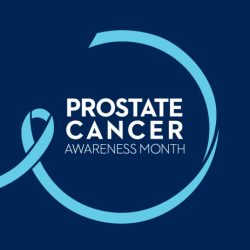World Mental Health Day
October 10th is World Mental Health Day and Atlantic PATH is pleased to be involved in multiple studies examining mental health and well-being. COVID Global Mental Health Consortium The COVID Global Mental Health Consortium was recently funded and includes 23 global cohorts representing 2.8 million participants. It will produce a global evaluation of pandemic-related mental health outcomes using individual-level harmonized longitudinal data. Research will begin this fall and we look forward to participating and contributing to this important work. Depression, Anxiety and Risk of Cancer Depression and anxiety have long been thought to be related to an increased cancer risk. The Psychosocial Factors and Cancer Incidence (PSY-CA) consortium is led from the Netherlands and includes Atlantic PATH, CARTaGENE (Quebec) and the Ontario Health Study. This study found that mental health was not related to an increased risk of cancer. Shift Work & Mental Health The relationship between mental health and shift work was evaluated among Atlantic PATH participants. Shift workers reported higher levels of each of the mental health domains compared to non-shift workers. Shift workers were more likely to have increased rates of depression and poor self-rated health, as well as depressive and anxiety symptom scores compared to non-shift workers. As a result, shift workers may be at increased risk of comorbidity, poor quality of life, missed work, and early retirement. Physical Activity and Self-Rated Health The population of Atlantic Canada is aging rapidly and has among the highest rates of chronic disease in the country. This study examined the association between physical activity and self-rated health among Atlantic PATH participants. The results suggest that physical activity is associated with and may help to improve perceived health status of individuals with one or more chronic conditions. The findings support literature suggesting that physical activity can be beneficial for adults as they age with chronic disease. Anxiety, Depression and Prostate Cancer Prostate cancer is the most prevalent form of cancer among males in Canada, and has one of the most favorable survival rates among all cancers. The incidence rates are expected to remain high with an aging population and an increase in asymptomatic detection. Prostate cancer survivors had higher odds of anxiety or depression symptoms compared to those with no history of cancer or a history of any other type of cancer. Prostate cancer survivors with a low household income had a higher rate of depression compared to those with a history of another type of cancer and a high household income. Prostate cancer survivors who were treated with surgery had a higher odds of depression symptoms compared to those with a history of other types of cancer. Increased rates of anxiety and depression among males with a history of prostate cancer highlights the need for mental health screening among prostate cancer survivors. The findings highlight the importance of a multidisciplinary effort to prioritize and deliver comprehensive mental health support throughout the prostate cancer journey.



